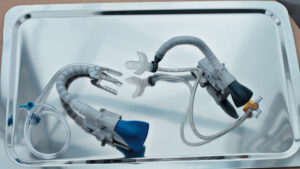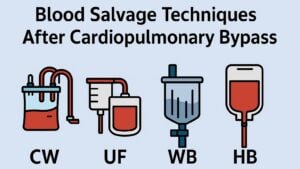Objectives: This study aimed to identify factors associated with neurological and disability outcomes in patients who underwent ECMO following cardiac arrest.
Methods: This retrospective, single-center, observational study included adult patients who received ECMO treatment for in-hospital cardiac arrest (IHCA) or out-of-hospital cardiac arrest (OHCA) between February 2016 and March 2020. Factors associated with neurological and disability outcomes in these patients who underwent ECMO were assessed.
Setting: Hamad General Hospital, Qatar.
Main outcome measures: Neurological disability outcomes were assessed using the Modified Rankin Scale (mRS) and the Cerebral Performance Category (CPC) scale.
Results: Among the 48 patients included, 37 (77 %) experienced OHCA, and 11 (23 %) had IHCA. The 28-day survival rate was 14 (29.2 %). Of the survivors, 9 (64.3 %) achieved a good neurological outcome, while 5 (35.7 %) experienced poor neurological outcomes. Regarding disability, 5 (35.7 %) of survivors had no disability, while 9 (64.3 %) had some form of disability. The results showed significantly shorter median time intervals in minutes, including collapse to cardiopulmonary resuscitation (CPR) (3 vs. 6, P = 0.001), CPR duration (12 vs. 35, P = 0.001), CPR to extracorporeal cardiopulmonary resuscitation (ECPR) (20 vs. 40, P = 0.001), and collapse-to-ECPR (23 vs. 45, P = 0.001), in the good outcome group compared to the poor outcome group.
Conclusion: This study emphasizes the importance of minimizing the time between collapse and CPR/ECMO initiation to improve neurological outcomes and reduce disability in cardiac arrest patients. However, no significant associations were found between outcomes and other demographic or clinical variables in this study. Further research with a larger sample size is needed to validate these findings.
Implications for clinical practice: The study underscores the significance of reducing the time between collapse and the initiation of CPR and ECMO. Shorter time intervals were associated with improved neurological outcomes and reduced disability in cardiac arrest patients.
Keywords: Cardiac arrest; Cardiopulmonary resuscitation; ECMO; In-hospital cardiac arrest; Neurological outcome; Out-hospital cardiac arrest; Prognosis.







